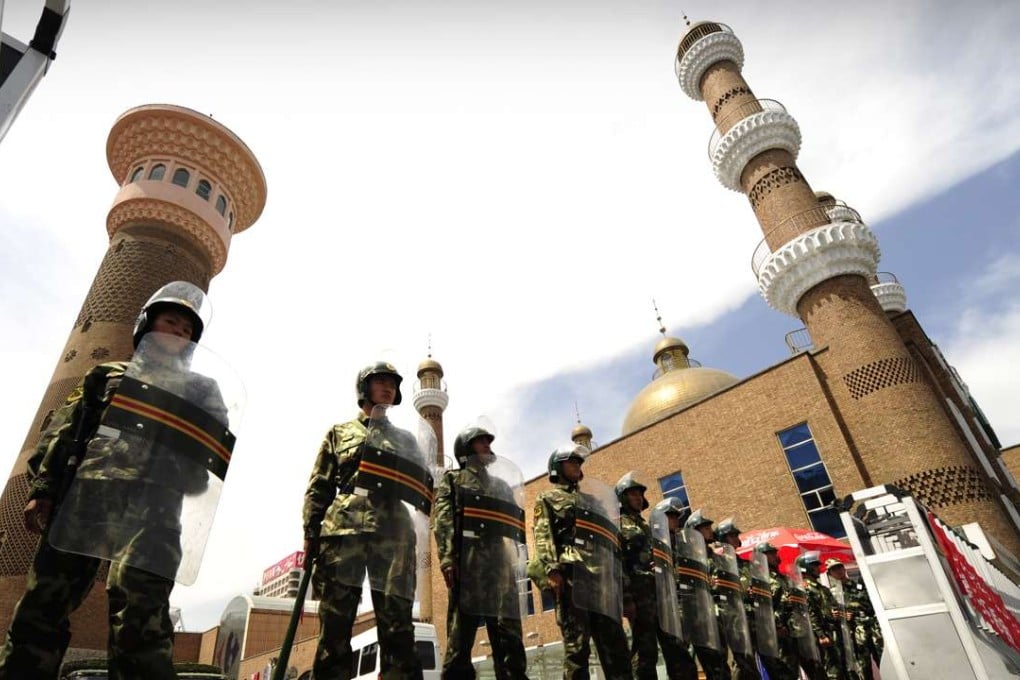Beijing policies in Xinjiang driving Chinese Muslims to join ranks of Islamic State, says US think tank
Critics say excessive restrictions on religious and cultural life is one of the main drivers of radicalism

Tough religious restrictions on Muslim minorities in the country’s far west may have driven more than 100 to join Islamic State (IS), a US think tank said on Wednesday.
Beijing has long claimed that IS is recruiting Uygurs from the mainly Muslim region of Xinjiang, and blamed outside forces for fomenting deadly acts of violence there and elsewhere in the country that have claimed hundreds of lives.
At the same time, authorities have banned or strictly controlled the observance of certain Muslim practices, such as growing beards and fasting during Ramadan, saying they were symbols of “Islamic extremism”.
Those policies “could be a push factor driving people to leave the country and look elsewhere for a sense of ‘belonging’”, the Washington-based New America Foundation wrote in a study of leaked registration documents for IS fighters.
The findings were based on data from more than 3,500 foreign recruits provided by a defector from the jihadist organisation.